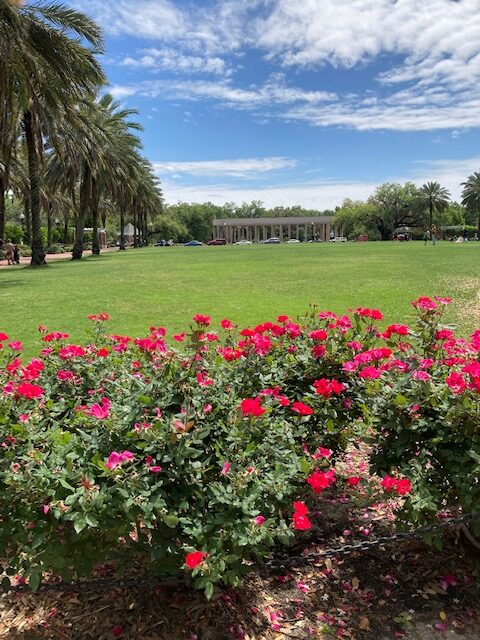In a homily on the Good Samaritan the other week, our pastor, Fr. Tom Fanta, had a new perspective. He had us consider “the view from the ditch.” The man who was beaten by robbers and left at the side of the road needed help. Did he call out for it? We don’t know. Often when we need help, we are reluctant to ask people. Why? Maybe because we value our independence too much, or we don’t want to impose on others, or we don’t want people to think less of us. Twice my mother fell and spent the night on the floor without pressing her alert button because she didn’t want to bother anyone. Now that is an extreme example. But how often do we suffer because we do not ask for help?
Jesus himself was not afraid to appeal to others. It began at his conception. Almighty God could have saved us in various ways, but he chose to enlist the aid of a young Jewish girl. When Jesus was ministering to a hungry crowd, he asked the apostles to help feed them. Again when he was thirsty, he dared to ask a Samaritan woman to give him a drink. At the end of his life he needed Simeon’s help in carrying the cross to Calvary. All right, Jesus didn’t ask for that help, but still he used it.
People ordinarily are glad to help. Someone once advised that when you need a favor, such as extra hands to carry out a project, you should use the words “Would you help me?” Those words touch hearts and lead to positive responses. I noticed that people are especially willing to help out travelers and that travelers help one another: to change a flat tire or to give directions. In one sense we are all traveling together on this earth. In fact, we are all one large family, the human race. We ought to be confident that when we reach out for help, someone will be there…just as we are willing to help someone in trouble if we can.
Has a stranger ever come to your aid–maybe even without being asked?









4 Responses
Sr. Kathleen,
Thank you for that reflection. It is a new and refreshing way of looking at the story of the good Samaritan. It always warms my heart to do even the smallest of kindnesses to another person, even something as simple as holding a door for the next person, whether that person is using a walker or is perfectly capable of getting the door him/herself. From that perspective, if I am in need of help, why wouldn’t I offer the opportunity to another to experience the “good feeling” of helping? I’ve had plenty of opportunities to need help in the past after some major surgeries (spinal fusion, knee replacements, shoulder surgery). This new viewpoint gives me a new perspective. I would prefer never needing to need that kind of help again, but one never knows what the future will hold. The other thing is this: being retired, I have much more time to look around me and to offer my assistance in someone else’s time of need. This reflection calls me to a heightened awareness. Thank you again!
Betty, I like the connection you make between how good you feel when helping others and giving others the opportunity to have this good feeling.
I like the novel way of looking at the Samaritan parable. Often, we don’t ask for help because we want to remain independent, we don’t want to admit (to ourselves perhaps) that we can’t cope, our pride won’t allow us. As we get older we learn, (unwillingly perhaps), to give up some control. I believe God allows people to get old to give the opportunity for others to help them.
God bless.
Yes, pride can be at the root of our reluctance to ask for help. Good point, Victor.